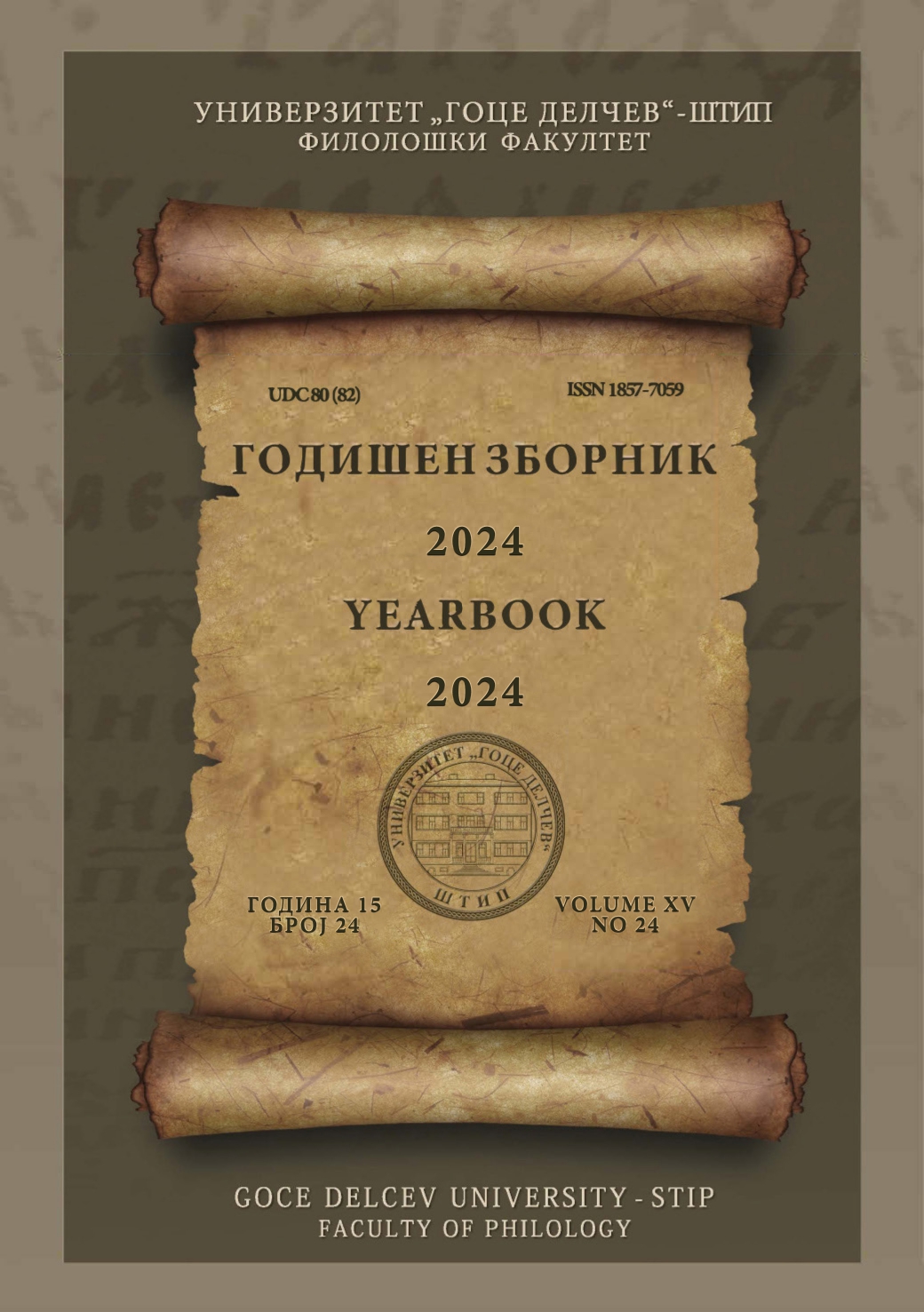DEONTIC AND EPISTEMIC PREVALENCE OF MODAL VERBS IN GERMAN LANGUAGE BASED ON EXAMPLES FROM THE HOLY GOSPELS ACCORDING TO MATTHEW
Abstract
This paper covers the presence of the deontic and epistemic modality in German
language based on examples from the Holy Gospels according to Matthew, in comparison
to the presence of deontic and epistemic modality in the Macedonian language based on
examples from the Holy Gospels according to Matthew. It examines which modal verbs are
mostly present and what meanings they convey. The analysis of modality of modal verbs
divided into deontic modality and epistemic modality in German and Macedonian language
demonstrates similarities and differences between the two languages. This paper analyses
verbs, such as: dürfen, können, mögen, müssen, sollen and wollen, while in Macedonian
language modal verbs, such as: може, мора, треба and смее are being analysed.

